Can you simply post everyday stories about China on the web? Or do vloggers and other influencers have to position themselves politically? The question of how to position yourself toward the People’s Republic is not new. Foreign correspondents have been dealing with this long before the Internet existed.
But the genre Fabian Peltsch looks at in our analysis is a more recent phenomenon: In China, a number of German influencers have risen to national fame with well-made videos in Chinese. They report on everyday experiences, casually teach German, or share cooking videos. They see themselves as cultural mediators. But this kind of harmless international exchange also attracts critics, such as blogger Christoph Rehage, who was banned from the Weibo platform due to his provocative political statements.
Shortly before the end of the year, there is discontent in Brussels about the EU’s relations with China. At the G20 summit in Bali, China’s President Xi Jinping gave Council President Michel and Commission President von der Leyen a wide berth. The frustration showed on Tuesday in a debate on how to deal with the People’s Republic in the EU Parliament, as Amelie Richter analyzes.
Several MEPs criticized the China policy of the Union as divided. EU Foreign Affairs Commissioner Borrell reacted with some spite, vehemently rejecting the accusation of cluelessness when it comes to China. Despite all the controversy, however, one thing seems certain: The imminent extension of sanctions related to the human rights situation in Xinjiang.
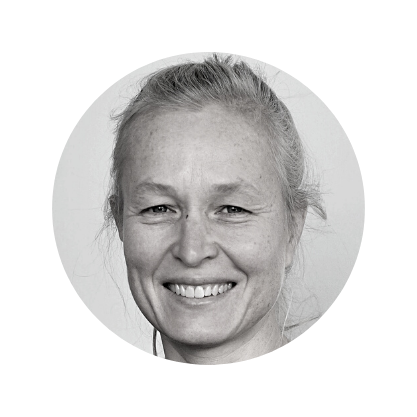
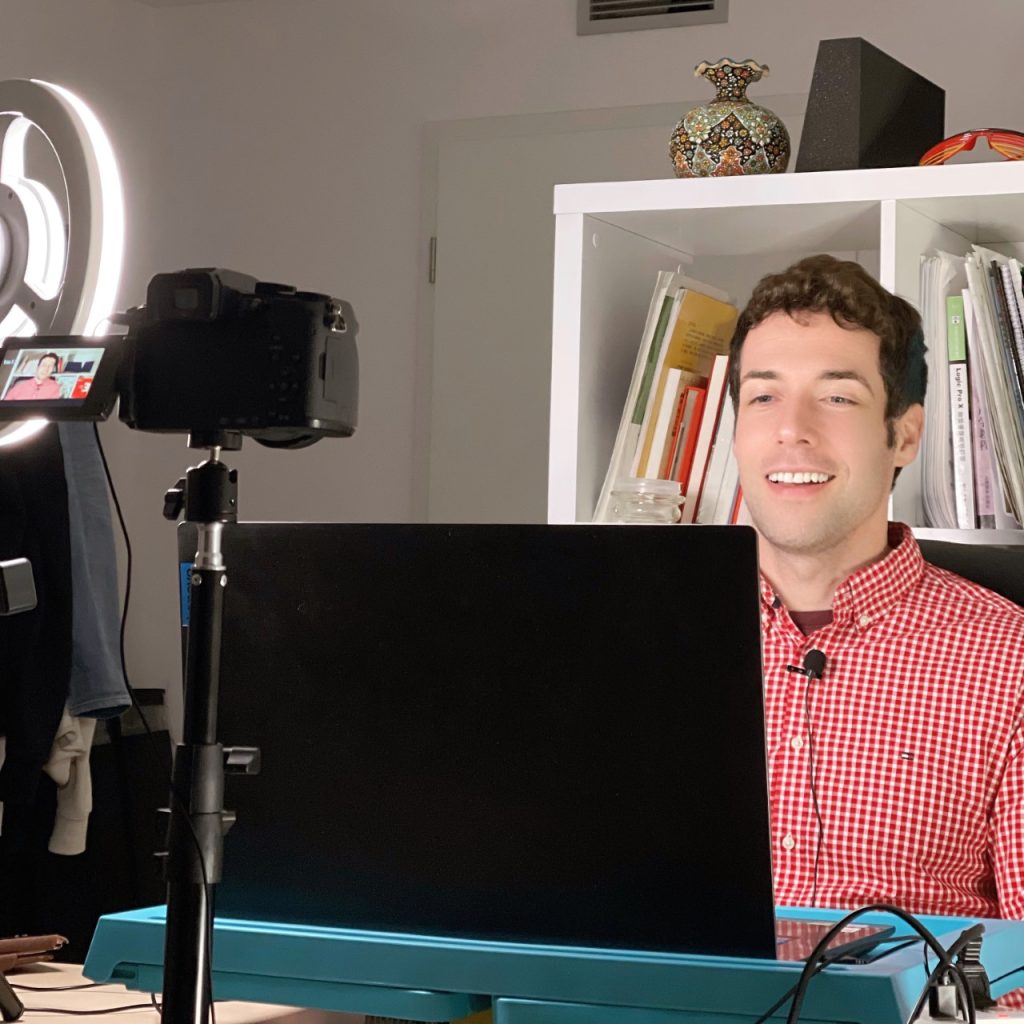
Thomas Derksen has become Germany’s most important cultural ambassador in the People’s Republic of China with his sympathetic videos about his life in China. The trained banker from Marienheide was allowed to accompany German President Frank-Walter Steinmeier on his last trip to China. He showed soccer player Lothar Matthaeus around his hometown of Shanghai as part of the “FC Bayern Legend Trophy Tour” campaign. Hardly anyone recognized the soccer legend. In stark contrast to Derksen, who now smiles from billboards as an advertising ambassador for German brands.
His pseudonym, Afu 阿福, roughly translates as “the lucky one”. Derksen has 21 social media channels in China. A total of around ten million people follow him there. The 34-year-old also has 665,000 subscribers on YouTube, many of them Chinese expatriates or citizens of Taiwan, Hong Kong and Malaysia.
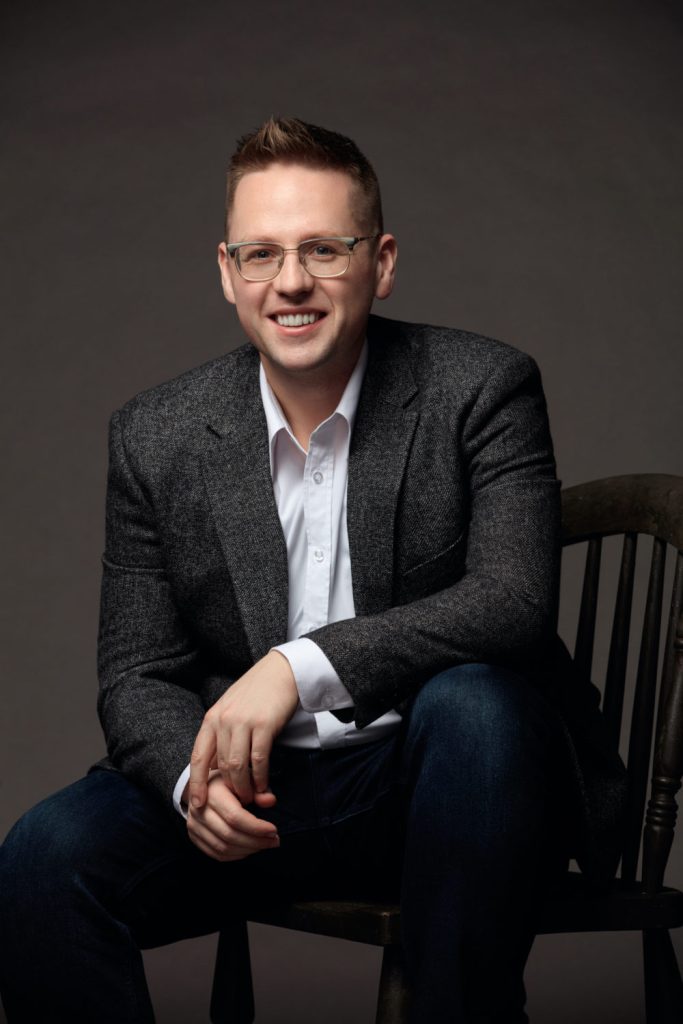
His Chinese wife Liping convinced him to start vlogging about ten years ago. In the beginning, it was just a bunch of silly videos in which Afu parodied his Chinese parents-in-law with a wig and a cigarette in the corner of his mouth. From his humble Buddha-bellied beginnings, he has become a well-trained entrepreneur whose videos cover a wide range of topics, from children’s education to the energy crisis. He is now also known in Germany. Derksen has published two books about life with his Chinese in-laws. On German TV, he gave language tips from everyday life, such as how to address a woman in Chinese.
Media-savvy Derksen answers questions as jovially and casually as a soccer coach. “If you had asked me six years ago what I would do with my life, I would never have thought of becoming an influencer,” he told China.Table. He worked in China for six months for the German medium-sized company Rothstein Metallfördergurte. Then influencer became his full-time job.
Today, Derksen and his three employees try to post at least one video a week. Right now, he mainly shoots videos from Germany. During the pandemic, he left Shanghai to celebrate his father’s 70th birthday – which brought him a lot of criticism in China. Derksen defends himself by saying that he already spent two months in the People’s Republic and two months in Germany before the pandemic. It would be absurd to say that he fled to Germany to escape the hard lockdown.
For one of his latest videos, Derksen visited a hidden champion from Baden-Wuerttemberg that specializes in paint spray guns. The video did better than average, with one to two million views on almost all channels, says the self-proclaimed bridge builder. “Many Chinese are fascinated that you don’t have to go to university in Germany to make a career.” There is currently a lot of youth unemployment in China. So new concepts are welcome, he says.
Michael Bochmann-Tao aka Deguomixia, a vlogger who offers German language courses on Chinese channels, observes a similar trend. “Many Chinese are very interested in jobs and vocational training in Germany right now,” says the business sinologist and certified German teacher. “Emigration is a huge topic.” Many of his students come from lower-middle-class backgrounds and are interested in jobs as caregivers or cooks. “They see my language courses as an investment,” said Bochmann-Tao, who worked for three gaming companies in China between 2011 and 2016. Today, he works as a localization specialist in Berlin. He only makes the videos for his roughly 600,000 followers in China on the side. His first went online in 2018, an impromptu attempt at Chinese cooking that garnered thousands of clicks in a short time. “At that time, the video platform Douyin was still relatively new, and I, as a Chinese-speaking foreigner, was still an eye-catcher,” says the 37-year-old.
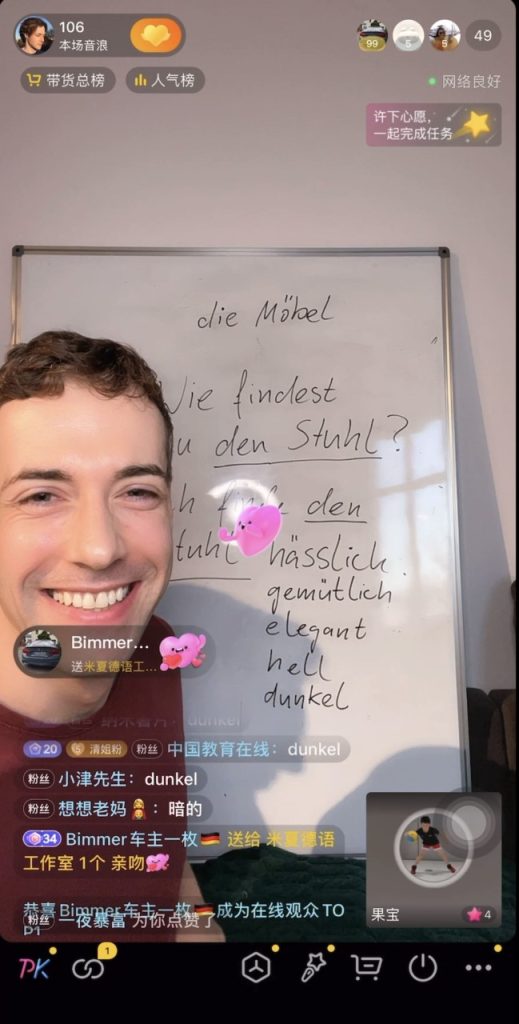
“You have completely different opportunities as a foreigner who speaks Chinese,” confirms Melina Weber. “But you then also act as a representative for your country. You have to be aware of that.” Weber has been in the influencer business since 2019. In one of her videos, the 29-year-old business graduate describes herself as a “German-East Asian cultural ambassador who wants to make a positive contribution to international understanding.” She learned Chinese as an exchange student and intern in Malaysia, Taiwan and Beijing, where, among other things, she attended an acting course taught in Mandarin at the Beijing Film Academy. In theory, she is still enrolled there, she tells China.Table. However, the pandemic has also blocked her path back to China for the time being.
Weber’s videos are now mainly set in her home on Lake Constance, where she gives yoga and cooking lessons, for example, or shows her 652,000 Chinese followers all the things you can buy in a German supermarket for 350 renminbi, just under 50 euros. “People are interested in normal life,” Weber says. She is still getting to grips with live streaming, which is the way to make the most money in China. Entire media academies here now specialize in training salespeople and advertising ambassadors for e-commerce platforms like JD.com. Weber also works with Chinese marketing agencies on a project basis. However, she stresses that she retains control over the content.

Each site has its own guidelines. These include, for example, that smoking, alcohol consumption or the display of a decadently luxurious lifestyle are not welcome. “In Asia, you’re generally not allowed to show cleavage either, regardless of whether it’s in India, Japan or Korea. Belly-baring, on the other hand, is okay,” Weber says. Videos that violate these rules are not necessarily deleted, but their range is restricted. Content is then no longer recommended by the system, for example, and is therefore virtually impossible to find. This is referred to as “shadow banning“. The comment function is also sometimes switched off in order to control political discussions and hate messages.
All three influencers are doing well. They have already been asked by Chinese state media for collaborations. In his early days, Derksen appeared on a talk show on Shanghai TV. Weber participated in an expat talk show on CGTN. Bochmann-Tao shot a cooking video with a Xinhua reporter in Berlin, but it only ended up appearing on his channel.
None of them had the feeling of being instrumentalized, like the Israeli vlogger Raz Gal-Or. He was paid to travel to Xinjiang (China.Table reported) to report on the carefree local Uyghur farmers. “I didn’t feel cornered there,” Weber says of her appearance on CGTN. “You always have to represent the values you grew up with. And you can also be a friend of China without betraying those values.” Weber said she would like to see more Germans take an interest in China. She is too often approached about political issues for her liking. Derksen has a similar view: “The image of China in Germany is very negative, that needs to be said, because it’s always about politics. When friends and acquaintances visit me in China, they often say: ‘This is a country where you can also live well’.” There are extremes on both sides, says Derksen.
A sharp critic of this kind of soft international exchange is Christoph Rehage: “As a citizen of a democracy, you cannot simply say that you are not interested in political issues. Especially since, in the end, a lot of these videos are political.” For a short time, Rehage was one of the most famous Germans in China. Around 2015, Lei Ke, as he was known in Chinese, had around 800,000 followers on Weibo. The Hanover native rose to fame after walking from Beijing to Ürümqi in 2007 – a tough, 4,500-kilometer journey that he boiled down to five minutes in a globally acclaimed time-lapse video. A Chinese publishing house translated the books about the journey. But in 2015, things fell apart after Rehage made fun of national heroes Lei Feng and Hua Mulan. He was openly attacked in the comments section, and Weibo eventually deleted his account.
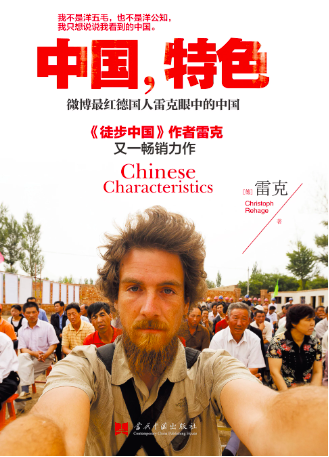
Seven years later, Rehage still posts videos, often in Chinese, but now primarily on YouTube and Twitter, where a total of nearly 250,000 people follow him. His posts are often provocative and political, and he regularly criticizes the Chinese government. He leaves sneering comments to foreign influencers such as New Zealander Andy Boreham, who proudly presents himself as a friend of Beijing. “There are believers like Andy Boreham. But these are not the dangerous ones, because they have no market abroad with their open propaganda,” Rehage said.
“People like Afu are much more perfidious because he travels around with Steinmeier as a so-called bridge builder and explains with his wife on TV how funny and sweet things are in China.” At the same time, he said, someone like Derksen knows exactly what tragedies happen there. “While people in his hometown of Shanghai were jumping off houses during the pandemic, Afu made a video of how full his fridge is. I think that’s cynical.”
But Rehage does not believe that influencers like Afu or even Boreham are paid by the government. “No cadre comes along and puts them on their payroll; that would be far too embarrassing if it got out. Direct payment is not what drives these people – the drive is for the channel to grow, that’s where the money comes from on its own.” And for that, the influencers simply do not comment on certain topics, says Rehage. Dictatorship is downplayed by this self-censorship, he says. “People say, ‘I like the people there, I like the food.’ At the same time, I pretend I don’t see all the bad sides.”
One thing is obvious to everyone: The influencer’s business model does not work in China with open criticism of the government. In this way, their situation is similar to that of companies like VW: If you want to be present in China, you have to remain vague in public – and avoid political commitments as much as possible. “I don’t want to be a propaganda tool, for either side,” Derksen says. “In the end, viewers make up their own minds anyway.” He is simply Afu, who tells stories from his life, he says.
The year 2022 is nearing its end – and the EU seems to be still looking for a unified and sustainable way of dealing with China. “Neither naïve, nor alarmist” should be the relations with Beijing, stressed the EU High Representative for Foreign Affairs, Josep Borrell, on Tuesday evening during a debate on the topic in the EU Parliament. The last time the plenary dealt with the China issue in this form was last April. At that time, the rather poorly executed EU-China summit earlier that month received a lot of criticism. Borrell himself had called the video session a “dialogue of the deaf” (China.Table reported).
Almost eight months later, there is no sign of much progress on diplomacy between Brussels and Beijing. Personal contact between high-level officials – on the EU side, Council President Charles Michel and European Commission President Ursula von der Leyen, and China’s leader Xi Jinping or Premier Li Keqiang – did not happen. Recently, the cancellation of a video message by Michel intended for the opening of the 5th Hongqiao Forum (CIIE) in Shanghai, had caused a stir (China.Table reported).
Even at the G20 summit on the Indonesian island of Bali last week, there was no personal meeting between Xi and the EU representatives. Although both EU Council President Michel and EU Commission President von der Leyen were present – China’s President apparently preferred to meet the heads of state and government of the member states instead (China.Table reported).
On the one hand, EU circles point to meetings with China at working and lower diplomatic levels, which can often imply deeper progress than visually representative top-level meetings. On the other hand, partly harsh reactions from EU officials suggest that Brussels is not happy with the way things are currently going with the China plan – and must continue to seek its own way.
On Tuesday evening, EU foreign policy chief Borrell appealed to the unity of the EU, which is absolutely needed towards China. But Borrell then rejected criticism of Chancellor Olaf Scholz’s solo visit to Beijing from other EU heads of government and foreign ministers, among others. “I cannot understand why the exchange between the German chancellor and China is so worrying. Trade with China is a significant part of Germany’s GDP, so why is this such a big problem? Before Scholz, how many times was Merkel in China?” asked Borrell, referring to the former chancellor.
Several MEPs earlier criticized that the member states were divided. Borrell, in turn, accused the EU Parliament of lacking unity – which seemed almost spiteful given the speeches of EU parliamentarians and consistently large majority votes on China-related resolutions. Borrell then listed a number of trade instruments the EU is working on to safeguard itself against practices from China. “So please don’t stand here and say we are not doing anything.” MEPs need to show more realism and “take into account the complexity of things and the need for the EU Parliament to contribute to it,” Borrell chided the Parliament’s attitude.
The EU Parliament, for example, stopped its work on the finalized CAI investment agreement after Beijing imposed punitive measures on several EU parliamentarians in 2021. China’s sanctions sweep in March was triggered by punitive measures against four Chinese officials and an organization over human rights abuses in Xinjiang. It is precisely these sanctions that are now to be extended.
In EU circles, the extension of sanctions sounds like a done deal. The situation in the region has obviously not changed for the better, they say, also with reference to a UN report by the former High Commissioner for Human Rights, Michelle Bachelet. The extension of sanctions will be discussed at next week’s meeting of EU ambassadors. Confirmation is then expected at the meeting of EU foreign ministers in early December.
The EU sanctions target Zhu Hailun, former CCP Vice Chairman in Xinjiang, and Wang Junzheng, Party Secretary of the Xinjiang Production and Construction Corps (XPCC), an economic and paramilitary organizational unit in Xinjiang that reports to the central government in Beijing. According to the EU, it is also responsible for managing detention centers. The punitive measures also target Wang Mingshan, a member of the Xinjiang CPC Standing Committee, and Chen Mingguo, Director of the Xinjiang Public Security Bureau (PSB), the regional security agency in the province. The PSB, which is part of XPCC, is also separately included on the sanctions list as an organization.
The individuals concerned are banned from entering the EU, and their assets are also frozen. In addition, they are not allowed to receive any financial resources or economic support from EU organizations or individuals.
“It would be a fatal signal if the sanctions were not extended. But an extension is only the least that can be done because the current sanctions are little more than symbolism,” said Haiyuer Kuerban, Director of the Berlin office of the World Uyghur Congress. “The sanctioned regional officials will not be sensitively affected.” For this reason, calls are being made to extend sanctions to decision-makers in the central government.
How to deal with Beijing is not only keeping Brussels awake at night. The German government also continues work on its China strategy, which in turn is being closely followed in the other EU capitals. The conservative Christian Democratic Union (CDU) also put the planned China strategy on the agenda in the Bundestag on Tuesday – but the German government declined to answer any questions about the details. Since the creation of the China strategy “is an ongoing, internal government coordination process,” nothing can be said about the details at the moment.
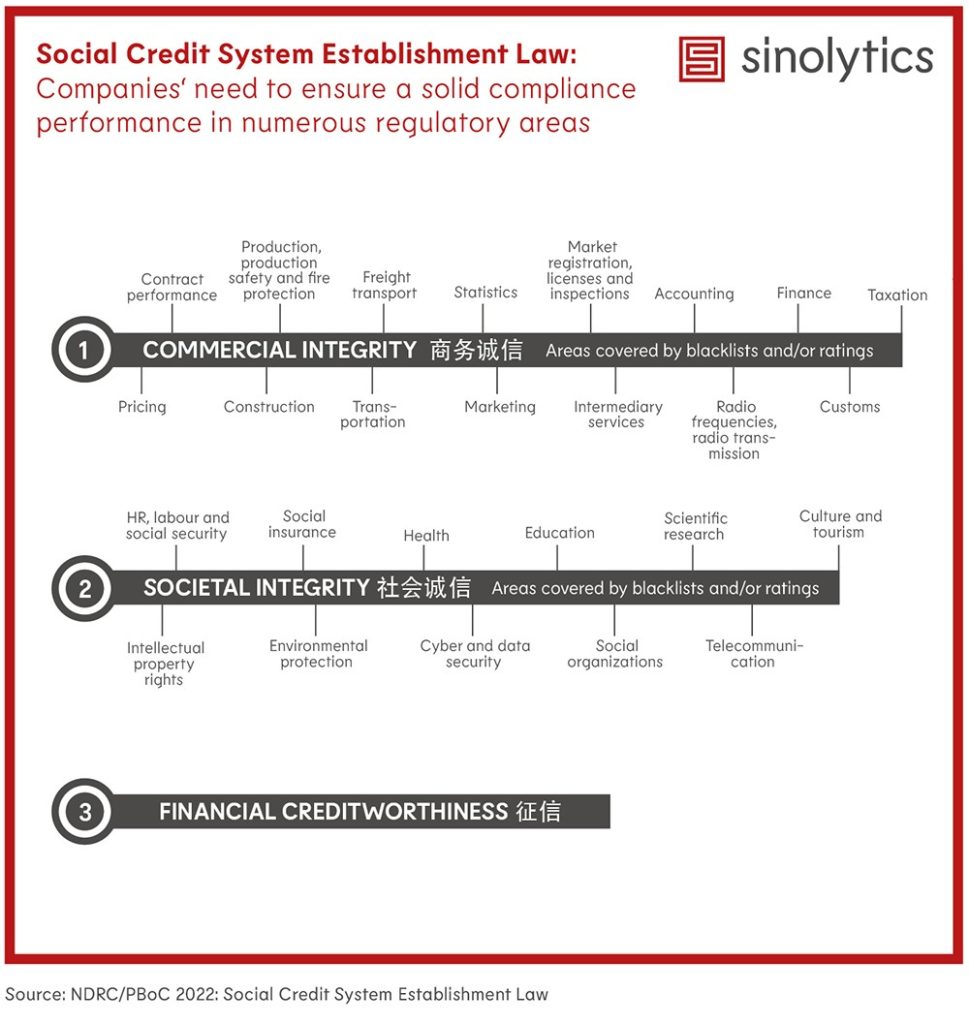
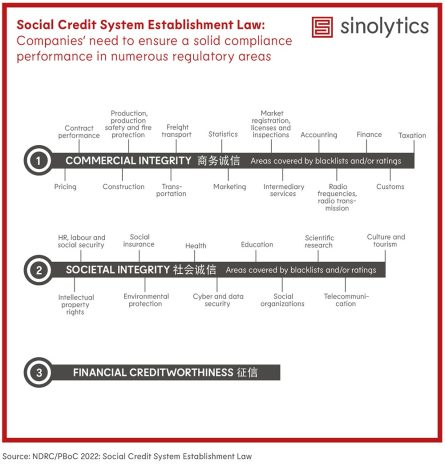
Sinolytics is a European research-based consultancy entirely focused on China. It advises European companies on their strategic orientation and concrete business activities in the People’s Republic.
Although US Vice President Kamala Harris did not specifically mention China, it was clear to whom she was addressing her words. During her visit to the Philippines, Harris urged that free navigation in the South China Sea not be restricted. “In the face of intimidation and coercion,” the US would continue to back the Philippines, the US Vice President promised. “Irresponsible behavior” will not be tolerated, she said.
She delivered her speech Tuesday aboard a Philippine Coast Guard ship in the port of Puerto Princesa, the capital of Palawan Island, which is located near a maritime territory disputed between Manila and Beijing. China claims almost the entire South China Sea and tries to create facts by building artificial islands. Again and again disputes arise between China and neighboring states. Just before Harris’ arrival, an incident had occurred between the Philippines and China at sea near the island of Pag-asa (China.Table reported).
US Secretary of Defense Lloyd Austin also expressed concern about the “increasingly dangerous behavior” of Chinese military aircraft in the South China Sea at a meeting with his Chinese counterpart Wei Fenghe. Austin and Wei met in Cambodia; it was the first official meeting between the two after China suspended all dialogue formats in protest of US House of Representatives Speaker Nancy Pelosi’s visit to Taiwan. The two presidents Joe Biden and Xi Jinping held out the prospect of resuming bilateral talks on the sidelines of the G20 summit in Bali.
At the meeting, Austin also called on China to refrain from “destabilizing actions toward Taiwan.” The meeting, which lasted about 90 minutes, was nevertheless described by one of Austin’s staff members as “productive and professional.” flee
Germany is not the only country interested in liquefied gas supplies from Qatar. China, which is actually well supplied and constantly taps new sources (China.Table reported), is also securing its share of the sought-after fuel.
Now, China’s state-owned oil company Sinopec signed a 27-year contract for the supply of liquefied natural gas (LNG) with its counterpart QatarEnergy, also a state-owned company. At four million tons per year, it is one of the longest-running fixed contracts in the sector. China’s long-term commitment should be a model for European countries now seeking gas deals, said QatarEnergy chief executive Saad el-Kaabi.
China has already been investing in Qatar for years (China.Table reported). The EU, on the other hand, wants to purchase LNG from Qatar in the short term to plug the current supply gaps; in the long term, however, it pursues the goal of phasing out gas. This is why Germany in particular shies away from signing long-term contracts. fin
Authorities arrested two suspects on Tuesday after the deadly fire at a factory in the Henan province. However, official media did not give details. The fire at Kaixinda Trading Co. in the city of Anyang killed 36 people on Monday, with two still missing, according to official sources. Two people were also taken to hospital with non-life-threatening injuries.
Industrial accidents occur frequently in China, with many people dying as a result. Safety standards are often inadequate; there is also known corruption among officials who are supposed to enforce such standards. In 2021, a gas explosion in the central city of Shiyan killed 25 people. In March 2019, 78 people died in an explosion at a chemical plant in Yancheng, 260 km from Shanghai. The blast destroyed dozens of houses in the area. The worst such accident was the devastating explosion at a chemical warehouse in the northern port city of Tianjin, which killed 165 people. The explosion, which was widely shared on social media at the time, also left a massive swath of destruction in its wake.
Most recently, the South China Morning Post reported in June about the death of one person in an explosion at a chemical plant owned by state-owned Sinopec in Shanghai after three different fires had broken out. Another was injured. ck
China’s market regulator wants to further rein in technology firms with stricter rules against unfair competition. The State Administration for Market Regulation (SAMR) presented a draft reform of the 1993 Competition Law on Tuesday, which now envisages fines of up to five percent of the annual turnover of affected companies for competition violations by Internet groups.
According to the draft, companies as well as platform operators may not, among other things, use data, algorithms, technologies or capital advantages to engage in unfair competition. Nor may they exploit their monopoly position – for example, by “unreasonably different treatment or unreasonable restrictions” of users or by analyzing users’ preferences and habits. It would be the third revision of the Competition Act. The public has until Dec. 22 to comment on the proposals.
Currently, the central bank prepares to fine Alibaba financial services provider Ant Group the equivalent of more than one billion US dollars, according to a Reuters report citing six unnamed sources. The central bank has been pursuing a restructuring of Ant since the company’s 2020 IPO was blocked at the last minute. Settlement of the long-awaited fine could now clear the way for Ant to get a license as a financial holding company – including a later revival of its stock market plans, according to Reuters. Ant parent Alibaba Group was fined a record 18 billion yuan (2.51 billion US dollars) in 2021 for antitrust violations. rtr/ck
Europe must strengthen its strategic autonomy in space, according to France’s Minister of the Economy and Finance, Bruno Le Maire. This would be the only way to compete with countries such as China and the United States, Bruno Le Maire said Tuesday in Paris at a ministerial meeting of the European Space Agency (ESA). European capitals must work together to provide “autonomous access to space,” Le Maire said. “There must be a single Europe, a single European space policy and unwavering unity to face Chinese ambitions and American ambitions.” At the ESA Ministerial Council meeting, which will end today (Wednesday), the space agency hopes to get the green light from the 22 member countries for new and changed missions, as well as an increased budget. ari
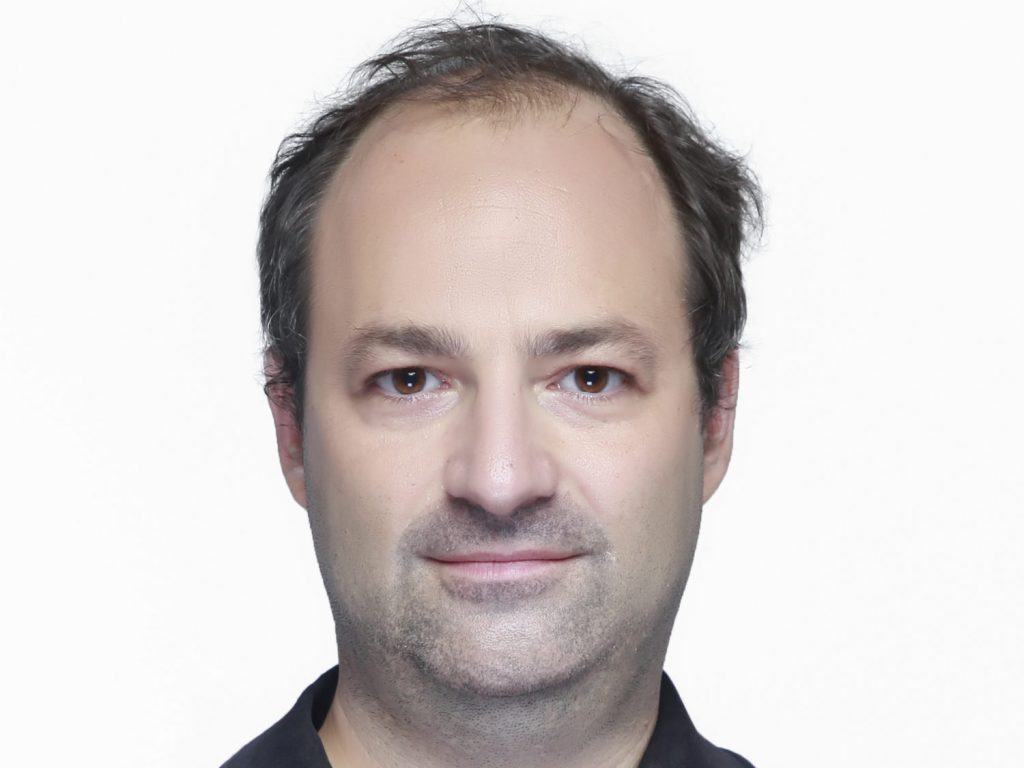
The recent visit by German Chancellor Olaf Scholz to China could soon lead to further visits by German and European delegations to the People’s Republic. At least that is the hope of Sergio Grassi, the new Director of the Friedrich Ebert Stiftung (FES) in Beijing. Scholz’s visit could prove to be an impetus for Europe and China to move closer together again after years of distancing. “By next year at the latest, we would like to have regular exchanges in both directions again,” says Grassi.
The 43-year-old, who grew up between cultures as the child of a German mother and an Italian father, sees his task as building bridges – so that decision-makers and scientists can better understand each other again and formulate common interests.
Sergio Grassi arrived in Beijing with his family in the summer. But it was not a leap into the unknown for him. His academic roots lie in the Chinese capital, to which he has now returned. He remained loyal to his employer ever since he completed a one-year internship in Beijing during his sinology and economics studies and after writing his final thesis.
After graduating, he worked for the FES in Beijing for three and a half years – a long time ago at the beginning of the last decade. “Beijing is even more livable today than it was then because of the improved air quality and infrastructure,” says the China expert.
Until the summer of 2021, Sergio Grassi worked for six years from Jakarta, where he was responsible for FES country projects in Indonesia and Malaysia. Before that, he worked at the Berlin headquarters in Europe, as well as in the Sub-Saharan Africa unit, where he gained a new perspective on China. “China’s influence on many African countries is overwhelming: the airport you land at, the roads you drive into the city on, the bridges you cross, the ministry buildings – everything was built by Chinese companies,” he says.
During the last few months in his hometown of Berlin and in Brussels, Sergio Grassi experienced how China is currently perceived in Germany and Europe – in times of Covid-related contact restrictions, China’s more assertive foreign policy and the Russian invasion of Ukraine, on which the two sides have different positions. “The Chinese side perceives that the mood has darkened – and they are also looking with skepticism at the upcoming China strategy paper to be released early next year,” he says.
And yet Grassi sees a scope for action that he wants to use. Whether it’s foreign or security policy, economic technology or social security, the rule of law, gender justice, or development and social policy, “We’ve been on the ground as FES with our own offices for almost forty years, and we’ve always aimed to remain in critical-constructive dialogue based on a respectful understanding of the significance of China and its history – even in the face of differing views.” Janna-Degener Storr
Patrick Fabian Schulz has been Director of Quality Control at pharmaceutical manufacturer Boehringer Ingelheim Biopharmaceuticals in Shanghai since September. Previously, he headed production control at Global Biopharma Quality.
Is something changing in your organization? Why not let us know at heads@table.media!
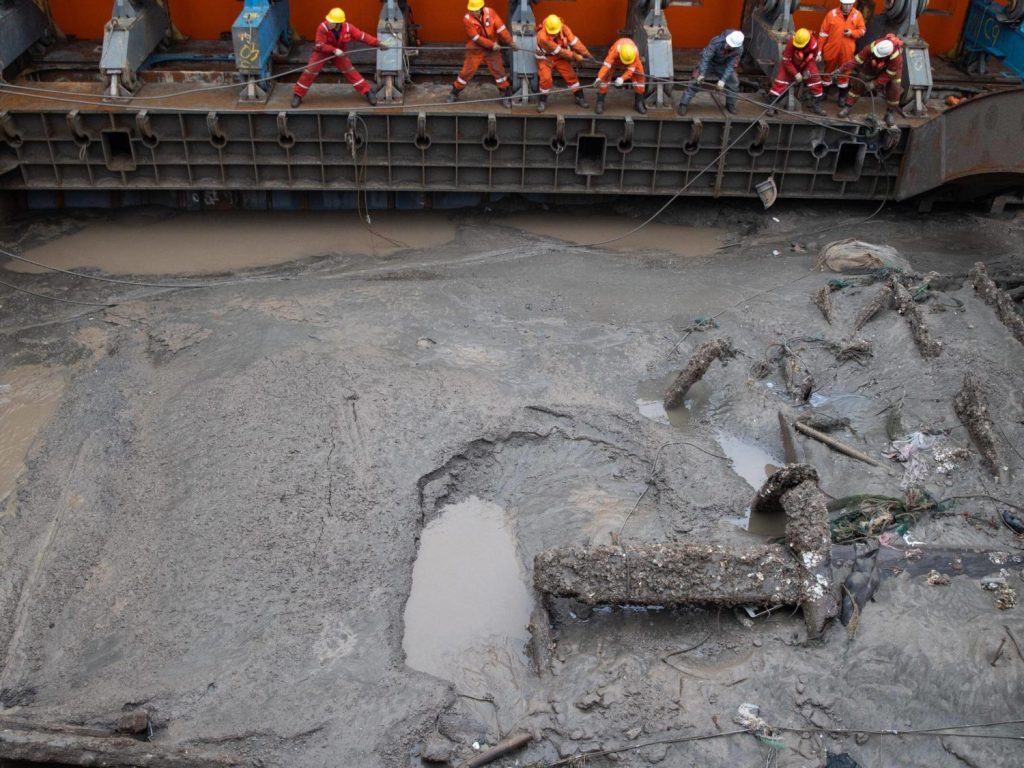
No, no one threw their garbage into the Yangtze River. What archaeologists pulled out of the mud near Shanghai is part of a gigantic wooden shipwreck dating back to the 19th century. Experts believe the ship was in use between 1862 and 1875 under Emperor Tongzhi of the Qing Dynasty. They hope to gain insight into the Chinese shipbuilding technology of the time, which was considered to be among the most advanced – before steamboat technology also made its way into the Far East.
Can you simply post everyday stories about China on the web? Or do vloggers and other influencers have to position themselves politically? The question of how to position yourself toward the People’s Republic is not new. Foreign correspondents have been dealing with this long before the Internet existed.
But the genre Fabian Peltsch looks at in our analysis is a more recent phenomenon: In China, a number of German influencers have risen to national fame with well-made videos in Chinese. They report on everyday experiences, casually teach German, or share cooking videos. They see themselves as cultural mediators. But this kind of harmless international exchange also attracts critics, such as blogger Christoph Rehage, who was banned from the Weibo platform due to his provocative political statements.
Shortly before the end of the year, there is discontent in Brussels about the EU’s relations with China. At the G20 summit in Bali, China’s President Xi Jinping gave Council President Michel and Commission President von der Leyen a wide berth. The frustration showed on Tuesday in a debate on how to deal with the People’s Republic in the EU Parliament, as Amelie Richter analyzes.
Several MEPs criticized the China policy of the Union as divided. EU Foreign Affairs Commissioner Borrell reacted with some spite, vehemently rejecting the accusation of cluelessness when it comes to China. Despite all the controversy, however, one thing seems certain: The imminent extension of sanctions related to the human rights situation in Xinjiang.


Thomas Derksen has become Germany’s most important cultural ambassador in the People’s Republic of China with his sympathetic videos about his life in China. The trained banker from Marienheide was allowed to accompany German President Frank-Walter Steinmeier on his last trip to China. He showed soccer player Lothar Matthaeus around his hometown of Shanghai as part of the “FC Bayern Legend Trophy Tour” campaign. Hardly anyone recognized the soccer legend. In stark contrast to Derksen, who now smiles from billboards as an advertising ambassador for German brands.
His pseudonym, Afu 阿福, roughly translates as “the lucky one”. Derksen has 21 social media channels in China. A total of around ten million people follow him there. The 34-year-old also has 665,000 subscribers on YouTube, many of them Chinese expatriates or citizens of Taiwan, Hong Kong and Malaysia.

His Chinese wife Liping convinced him to start vlogging about ten years ago. In the beginning, it was just a bunch of silly videos in which Afu parodied his Chinese parents-in-law with a wig and a cigarette in the corner of his mouth. From his humble Buddha-bellied beginnings, he has become a well-trained entrepreneur whose videos cover a wide range of topics, from children’s education to the energy crisis. He is now also known in Germany. Derksen has published two books about life with his Chinese in-laws. On German TV, he gave language tips from everyday life, such as how to address a woman in Chinese.
Media-savvy Derksen answers questions as jovially and casually as a soccer coach. “If you had asked me six years ago what I would do with my life, I would never have thought of becoming an influencer,” he told China.Table. He worked in China for six months for the German medium-sized company Rothstein Metallfördergurte. Then influencer became his full-time job.
Today, Derksen and his three employees try to post at least one video a week. Right now, he mainly shoots videos from Germany. During the pandemic, he left Shanghai to celebrate his father’s 70th birthday – which brought him a lot of criticism in China. Derksen defends himself by saying that he already spent two months in the People’s Republic and two months in Germany before the pandemic. It would be absurd to say that he fled to Germany to escape the hard lockdown.
For one of his latest videos, Derksen visited a hidden champion from Baden-Wuerttemberg that specializes in paint spray guns. The video did better than average, with one to two million views on almost all channels, says the self-proclaimed bridge builder. “Many Chinese are fascinated that you don’t have to go to university in Germany to make a career.” There is currently a lot of youth unemployment in China. So new concepts are welcome, he says.
Michael Bochmann-Tao aka Deguomixia, a vlogger who offers German language courses on Chinese channels, observes a similar trend. “Many Chinese are very interested in jobs and vocational training in Germany right now,” says the business sinologist and certified German teacher. “Emigration is a huge topic.” Many of his students come from lower-middle-class backgrounds and are interested in jobs as caregivers or cooks. “They see my language courses as an investment,” said Bochmann-Tao, who worked for three gaming companies in China between 2011 and 2016. Today, he works as a localization specialist in Berlin. He only makes the videos for his roughly 600,000 followers in China on the side. His first went online in 2018, an impromptu attempt at Chinese cooking that garnered thousands of clicks in a short time. “At that time, the video platform Douyin was still relatively new, and I, as a Chinese-speaking foreigner, was still an eye-catcher,” says the 37-year-old.

“You have completely different opportunities as a foreigner who speaks Chinese,” confirms Melina Weber. “But you then also act as a representative for your country. You have to be aware of that.” Weber has been in the influencer business since 2019. In one of her videos, the 29-year-old business graduate describes herself as a “German-East Asian cultural ambassador who wants to make a positive contribution to international understanding.” She learned Chinese as an exchange student and intern in Malaysia, Taiwan and Beijing, where, among other things, she attended an acting course taught in Mandarin at the Beijing Film Academy. In theory, she is still enrolled there, she tells China.Table. However, the pandemic has also blocked her path back to China for the time being.
Weber’s videos are now mainly set in her home on Lake Constance, where she gives yoga and cooking lessons, for example, or shows her 652,000 Chinese followers all the things you can buy in a German supermarket for 350 renminbi, just under 50 euros. “People are interested in normal life,” Weber says. She is still getting to grips with live streaming, which is the way to make the most money in China. Entire media academies here now specialize in training salespeople and advertising ambassadors for e-commerce platforms like JD.com. Weber also works with Chinese marketing agencies on a project basis. However, she stresses that she retains control over the content.

Each site has its own guidelines. These include, for example, that smoking, alcohol consumption or the display of a decadently luxurious lifestyle are not welcome. “In Asia, you’re generally not allowed to show cleavage either, regardless of whether it’s in India, Japan or Korea. Belly-baring, on the other hand, is okay,” Weber says. Videos that violate these rules are not necessarily deleted, but their range is restricted. Content is then no longer recommended by the system, for example, and is therefore virtually impossible to find. This is referred to as “shadow banning“. The comment function is also sometimes switched off in order to control political discussions and hate messages.
All three influencers are doing well. They have already been asked by Chinese state media for collaborations. In his early days, Derksen appeared on a talk show on Shanghai TV. Weber participated in an expat talk show on CGTN. Bochmann-Tao shot a cooking video with a Xinhua reporter in Berlin, but it only ended up appearing on his channel.
None of them had the feeling of being instrumentalized, like the Israeli vlogger Raz Gal-Or. He was paid to travel to Xinjiang (China.Table reported) to report on the carefree local Uyghur farmers. “I didn’t feel cornered there,” Weber says of her appearance on CGTN. “You always have to represent the values you grew up with. And you can also be a friend of China without betraying those values.” Weber said she would like to see more Germans take an interest in China. She is too often approached about political issues for her liking. Derksen has a similar view: “The image of China in Germany is very negative, that needs to be said, because it’s always about politics. When friends and acquaintances visit me in China, they often say: ‘This is a country where you can also live well’.” There are extremes on both sides, says Derksen.
A sharp critic of this kind of soft international exchange is Christoph Rehage: “As a citizen of a democracy, you cannot simply say that you are not interested in political issues. Especially since, in the end, a lot of these videos are political.” For a short time, Rehage was one of the most famous Germans in China. Around 2015, Lei Ke, as he was known in Chinese, had around 800,000 followers on Weibo. The Hanover native rose to fame after walking from Beijing to Ürümqi in 2007 – a tough, 4,500-kilometer journey that he boiled down to five minutes in a globally acclaimed time-lapse video. A Chinese publishing house translated the books about the journey. But in 2015, things fell apart after Rehage made fun of national heroes Lei Feng and Hua Mulan. He was openly attacked in the comments section, and Weibo eventually deleted his account.

Seven years later, Rehage still posts videos, often in Chinese, but now primarily on YouTube and Twitter, where a total of nearly 250,000 people follow him. His posts are often provocative and political, and he regularly criticizes the Chinese government. He leaves sneering comments to foreign influencers such as New Zealander Andy Boreham, who proudly presents himself as a friend of Beijing. “There are believers like Andy Boreham. But these are not the dangerous ones, because they have no market abroad with their open propaganda,” Rehage said.
“People like Afu are much more perfidious because he travels around with Steinmeier as a so-called bridge builder and explains with his wife on TV how funny and sweet things are in China.” At the same time, he said, someone like Derksen knows exactly what tragedies happen there. “While people in his hometown of Shanghai were jumping off houses during the pandemic, Afu made a video of how full his fridge is. I think that’s cynical.”
But Rehage does not believe that influencers like Afu or even Boreham are paid by the government. “No cadre comes along and puts them on their payroll; that would be far too embarrassing if it got out. Direct payment is not what drives these people – the drive is for the channel to grow, that’s where the money comes from on its own.” And for that, the influencers simply do not comment on certain topics, says Rehage. Dictatorship is downplayed by this self-censorship, he says. “People say, ‘I like the people there, I like the food.’ At the same time, I pretend I don’t see all the bad sides.”
One thing is obvious to everyone: The influencer’s business model does not work in China with open criticism of the government. In this way, their situation is similar to that of companies like VW: If you want to be present in China, you have to remain vague in public – and avoid political commitments as much as possible. “I don’t want to be a propaganda tool, for either side,” Derksen says. “In the end, viewers make up their own minds anyway.” He is simply Afu, who tells stories from his life, he says.
The year 2022 is nearing its end – and the EU seems to be still looking for a unified and sustainable way of dealing with China. “Neither naïve, nor alarmist” should be the relations with Beijing, stressed the EU High Representative for Foreign Affairs, Josep Borrell, on Tuesday evening during a debate on the topic in the EU Parliament. The last time the plenary dealt with the China issue in this form was last April. At that time, the rather poorly executed EU-China summit earlier that month received a lot of criticism. Borrell himself had called the video session a “dialogue of the deaf” (China.Table reported).
Almost eight months later, there is no sign of much progress on diplomacy between Brussels and Beijing. Personal contact between high-level officials – on the EU side, Council President Charles Michel and European Commission President Ursula von der Leyen, and China’s leader Xi Jinping or Premier Li Keqiang – did not happen. Recently, the cancellation of a video message by Michel intended for the opening of the 5th Hongqiao Forum (CIIE) in Shanghai, had caused a stir (China.Table reported).
Even at the G20 summit on the Indonesian island of Bali last week, there was no personal meeting between Xi and the EU representatives. Although both EU Council President Michel and EU Commission President von der Leyen were present – China’s President apparently preferred to meet the heads of state and government of the member states instead (China.Table reported).
On the one hand, EU circles point to meetings with China at working and lower diplomatic levels, which can often imply deeper progress than visually representative top-level meetings. On the other hand, partly harsh reactions from EU officials suggest that Brussels is not happy with the way things are currently going with the China plan – and must continue to seek its own way.
On Tuesday evening, EU foreign policy chief Borrell appealed to the unity of the EU, which is absolutely needed towards China. But Borrell then rejected criticism of Chancellor Olaf Scholz’s solo visit to Beijing from other EU heads of government and foreign ministers, among others. “I cannot understand why the exchange between the German chancellor and China is so worrying. Trade with China is a significant part of Germany’s GDP, so why is this such a big problem? Before Scholz, how many times was Merkel in China?” asked Borrell, referring to the former chancellor.
Several MEPs earlier criticized that the member states were divided. Borrell, in turn, accused the EU Parliament of lacking unity – which seemed almost spiteful given the speeches of EU parliamentarians and consistently large majority votes on China-related resolutions. Borrell then listed a number of trade instruments the EU is working on to safeguard itself against practices from China. “So please don’t stand here and say we are not doing anything.” MEPs need to show more realism and “take into account the complexity of things and the need for the EU Parliament to contribute to it,” Borrell chided the Parliament’s attitude.
The EU Parliament, for example, stopped its work on the finalized CAI investment agreement after Beijing imposed punitive measures on several EU parliamentarians in 2021. China’s sanctions sweep in March was triggered by punitive measures against four Chinese officials and an organization over human rights abuses in Xinjiang. It is precisely these sanctions that are now to be extended.
In EU circles, the extension of sanctions sounds like a done deal. The situation in the region has obviously not changed for the better, they say, also with reference to a UN report by the former High Commissioner for Human Rights, Michelle Bachelet. The extension of sanctions will be discussed at next week’s meeting of EU ambassadors. Confirmation is then expected at the meeting of EU foreign ministers in early December.
The EU sanctions target Zhu Hailun, former CCP Vice Chairman in Xinjiang, and Wang Junzheng, Party Secretary of the Xinjiang Production and Construction Corps (XPCC), an economic and paramilitary organizational unit in Xinjiang that reports to the central government in Beijing. According to the EU, it is also responsible for managing detention centers. The punitive measures also target Wang Mingshan, a member of the Xinjiang CPC Standing Committee, and Chen Mingguo, Director of the Xinjiang Public Security Bureau (PSB), the regional security agency in the province. The PSB, which is part of XPCC, is also separately included on the sanctions list as an organization.
The individuals concerned are banned from entering the EU, and their assets are also frozen. In addition, they are not allowed to receive any financial resources or economic support from EU organizations or individuals.
“It would be a fatal signal if the sanctions were not extended. But an extension is only the least that can be done because the current sanctions are little more than symbolism,” said Haiyuer Kuerban, Director of the Berlin office of the World Uyghur Congress. “The sanctioned regional officials will not be sensitively affected.” For this reason, calls are being made to extend sanctions to decision-makers in the central government.
How to deal with Beijing is not only keeping Brussels awake at night. The German government also continues work on its China strategy, which in turn is being closely followed in the other EU capitals. The conservative Christian Democratic Union (CDU) also put the planned China strategy on the agenda in the Bundestag on Tuesday – but the German government declined to answer any questions about the details. Since the creation of the China strategy “is an ongoing, internal government coordination process,” nothing can be said about the details at the moment.


Sinolytics is a European research-based consultancy entirely focused on China. It advises European companies on their strategic orientation and concrete business activities in the People’s Republic.
Although US Vice President Kamala Harris did not specifically mention China, it was clear to whom she was addressing her words. During her visit to the Philippines, Harris urged that free navigation in the South China Sea not be restricted. “In the face of intimidation and coercion,” the US would continue to back the Philippines, the US Vice President promised. “Irresponsible behavior” will not be tolerated, she said.
She delivered her speech Tuesday aboard a Philippine Coast Guard ship in the port of Puerto Princesa, the capital of Palawan Island, which is located near a maritime territory disputed between Manila and Beijing. China claims almost the entire South China Sea and tries to create facts by building artificial islands. Again and again disputes arise between China and neighboring states. Just before Harris’ arrival, an incident had occurred between the Philippines and China at sea near the island of Pag-asa (China.Table reported).
US Secretary of Defense Lloyd Austin also expressed concern about the “increasingly dangerous behavior” of Chinese military aircraft in the South China Sea at a meeting with his Chinese counterpart Wei Fenghe. Austin and Wei met in Cambodia; it was the first official meeting between the two after China suspended all dialogue formats in protest of US House of Representatives Speaker Nancy Pelosi’s visit to Taiwan. The two presidents Joe Biden and Xi Jinping held out the prospect of resuming bilateral talks on the sidelines of the G20 summit in Bali.
At the meeting, Austin also called on China to refrain from “destabilizing actions toward Taiwan.” The meeting, which lasted about 90 minutes, was nevertheless described by one of Austin’s staff members as “productive and professional.” flee
Germany is not the only country interested in liquefied gas supplies from Qatar. China, which is actually well supplied and constantly taps new sources (China.Table reported), is also securing its share of the sought-after fuel.
Now, China’s state-owned oil company Sinopec signed a 27-year contract for the supply of liquefied natural gas (LNG) with its counterpart QatarEnergy, also a state-owned company. At four million tons per year, it is one of the longest-running fixed contracts in the sector. China’s long-term commitment should be a model for European countries now seeking gas deals, said QatarEnergy chief executive Saad el-Kaabi.
China has already been investing in Qatar for years (China.Table reported). The EU, on the other hand, wants to purchase LNG from Qatar in the short term to plug the current supply gaps; in the long term, however, it pursues the goal of phasing out gas. This is why Germany in particular shies away from signing long-term contracts. fin
Authorities arrested two suspects on Tuesday after the deadly fire at a factory in the Henan province. However, official media did not give details. The fire at Kaixinda Trading Co. in the city of Anyang killed 36 people on Monday, with two still missing, according to official sources. Two people were also taken to hospital with non-life-threatening injuries.
Industrial accidents occur frequently in China, with many people dying as a result. Safety standards are often inadequate; there is also known corruption among officials who are supposed to enforce such standards. In 2021, a gas explosion in the central city of Shiyan killed 25 people. In March 2019, 78 people died in an explosion at a chemical plant in Yancheng, 260 km from Shanghai. The blast destroyed dozens of houses in the area. The worst such accident was the devastating explosion at a chemical warehouse in the northern port city of Tianjin, which killed 165 people. The explosion, which was widely shared on social media at the time, also left a massive swath of destruction in its wake.
Most recently, the South China Morning Post reported in June about the death of one person in an explosion at a chemical plant owned by state-owned Sinopec in Shanghai after three different fires had broken out. Another was injured. ck
China’s market regulator wants to further rein in technology firms with stricter rules against unfair competition. The State Administration for Market Regulation (SAMR) presented a draft reform of the 1993 Competition Law on Tuesday, which now envisages fines of up to five percent of the annual turnover of affected companies for competition violations by Internet groups.
According to the draft, companies as well as platform operators may not, among other things, use data, algorithms, technologies or capital advantages to engage in unfair competition. Nor may they exploit their monopoly position – for example, by “unreasonably different treatment or unreasonable restrictions” of users or by analyzing users’ preferences and habits. It would be the third revision of the Competition Act. The public has until Dec. 22 to comment on the proposals.
Currently, the central bank prepares to fine Alibaba financial services provider Ant Group the equivalent of more than one billion US dollars, according to a Reuters report citing six unnamed sources. The central bank has been pursuing a restructuring of Ant since the company’s 2020 IPO was blocked at the last minute. Settlement of the long-awaited fine could now clear the way for Ant to get a license as a financial holding company – including a later revival of its stock market plans, according to Reuters. Ant parent Alibaba Group was fined a record 18 billion yuan (2.51 billion US dollars) in 2021 for antitrust violations. rtr/ck
Europe must strengthen its strategic autonomy in space, according to France’s Minister of the Economy and Finance, Bruno Le Maire. This would be the only way to compete with countries such as China and the United States, Bruno Le Maire said Tuesday in Paris at a ministerial meeting of the European Space Agency (ESA). European capitals must work together to provide “autonomous access to space,” Le Maire said. “There must be a single Europe, a single European space policy and unwavering unity to face Chinese ambitions and American ambitions.” At the ESA Ministerial Council meeting, which will end today (Wednesday), the space agency hopes to get the green light from the 22 member countries for new and changed missions, as well as an increased budget. ari

The recent visit by German Chancellor Olaf Scholz to China could soon lead to further visits by German and European delegations to the People’s Republic. At least that is the hope of Sergio Grassi, the new Director of the Friedrich Ebert Stiftung (FES) in Beijing. Scholz’s visit could prove to be an impetus for Europe and China to move closer together again after years of distancing. “By next year at the latest, we would like to have regular exchanges in both directions again,” says Grassi.
The 43-year-old, who grew up between cultures as the child of a German mother and an Italian father, sees his task as building bridges – so that decision-makers and scientists can better understand each other again and formulate common interests.
Sergio Grassi arrived in Beijing with his family in the summer. But it was not a leap into the unknown for him. His academic roots lie in the Chinese capital, to which he has now returned. He remained loyal to his employer ever since he completed a one-year internship in Beijing during his sinology and economics studies and after writing his final thesis.
After graduating, he worked for the FES in Beijing for three and a half years – a long time ago at the beginning of the last decade. “Beijing is even more livable today than it was then because of the improved air quality and infrastructure,” says the China expert.
Until the summer of 2021, Sergio Grassi worked for six years from Jakarta, where he was responsible for FES country projects in Indonesia and Malaysia. Before that, he worked at the Berlin headquarters in Europe, as well as in the Sub-Saharan Africa unit, where he gained a new perspective on China. “China’s influence on many African countries is overwhelming: the airport you land at, the roads you drive into the city on, the bridges you cross, the ministry buildings – everything was built by Chinese companies,” he says.
During the last few months in his hometown of Berlin and in Brussels, Sergio Grassi experienced how China is currently perceived in Germany and Europe – in times of Covid-related contact restrictions, China’s more assertive foreign policy and the Russian invasion of Ukraine, on which the two sides have different positions. “The Chinese side perceives that the mood has darkened – and they are also looking with skepticism at the upcoming China strategy paper to be released early next year,” he says.
And yet Grassi sees a scope for action that he wants to use. Whether it’s foreign or security policy, economic technology or social security, the rule of law, gender justice, or development and social policy, “We’ve been on the ground as FES with our own offices for almost forty years, and we’ve always aimed to remain in critical-constructive dialogue based on a respectful understanding of the significance of China and its history – even in the face of differing views.” Janna-Degener Storr
Patrick Fabian Schulz has been Director of Quality Control at pharmaceutical manufacturer Boehringer Ingelheim Biopharmaceuticals in Shanghai since September. Previously, he headed production control at Global Biopharma Quality.
Is something changing in your organization? Why not let us know at heads@table.media!

No, no one threw their garbage into the Yangtze River. What archaeologists pulled out of the mud near Shanghai is part of a gigantic wooden shipwreck dating back to the 19th century. Experts believe the ship was in use between 1862 and 1875 under Emperor Tongzhi of the Qing Dynasty. They hope to gain insight into the Chinese shipbuilding technology of the time, which was considered to be among the most advanced – before steamboat technology also made its way into the Far East.
